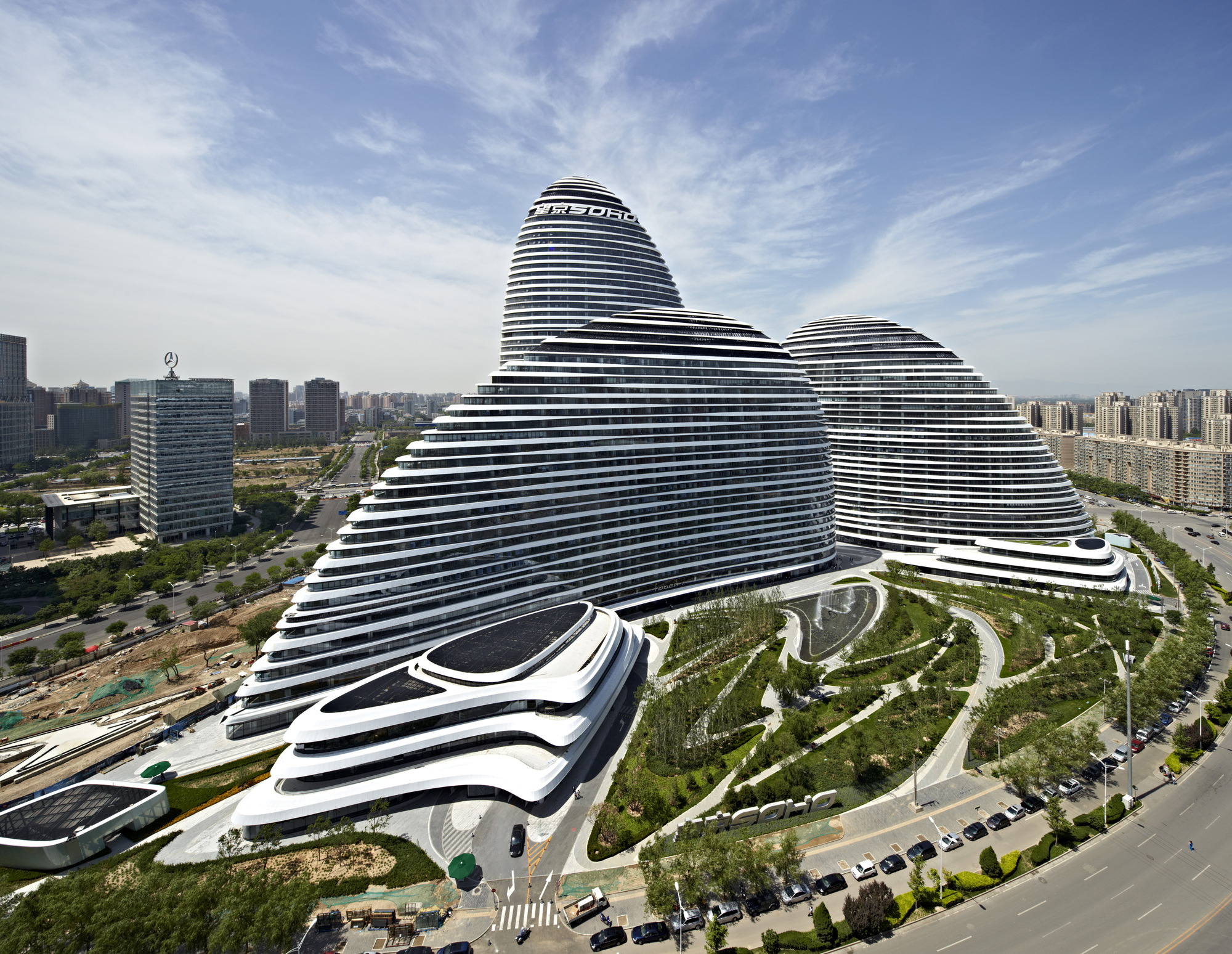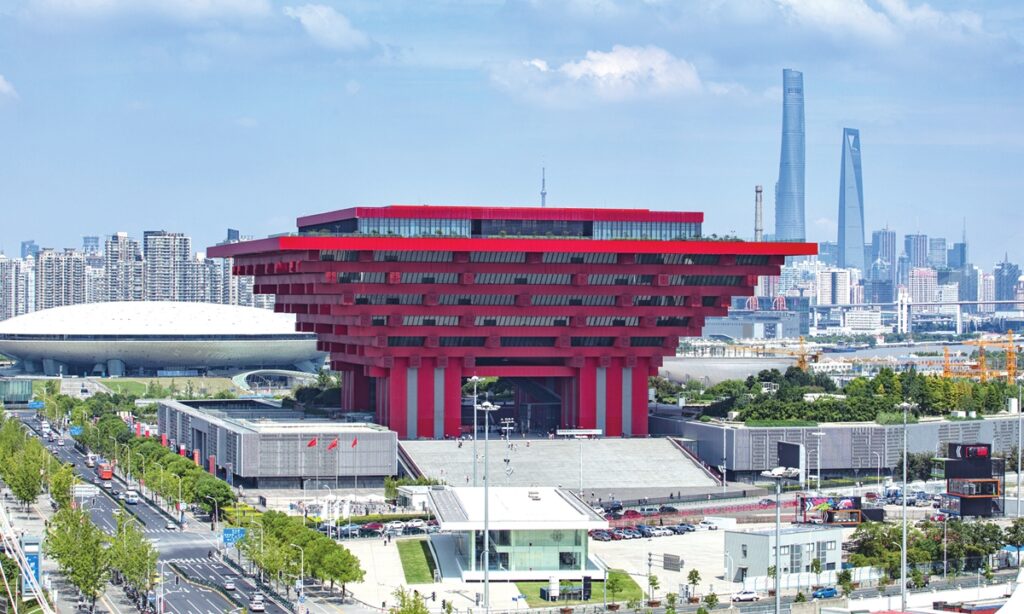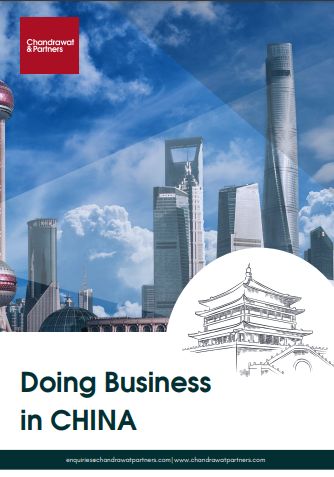China
We have a team of professionals to help you with all your business needs. So, that you can focus on business expansion in China.
WHY CHINA?
In the last 20 years, China has evolved faster than any other country in the world. Covering over 3.7 million square miles, China is the one of the fastest growing economy. Shanghai is the largest city of China, whereas Beijing is the capital. China’s strong government support for Foreign Direct Investment (FDIs), infrastructure development, cheap labor, new strong market reach etc. gives advantage for foreign investors to set up manufacturing plants in China. Its Gross Domestic Product (GDP) growth rate over the past three decades has often bypassed 10%, and consistently exceeded by 7%.

ADVANTAGES
Recently, China has become the manufacturing hub of the world. The country’s substantial part of the economy depends on international trade. It is the largest importer and exporter of goods and the largest manufacturing economies in the world. Thus, establishing a business in China would have the following benefits:
Favorable government policies
Favorable government policies ensures easy access to local business partners and investors in China. The business ecosystem in China is facilitative and the resources for growth are abundant both in rural and urban China.
The Chinese government has been very proactive in enforcing entrepreneurial supportive measures for both local and international companies. Some of these measures include:
- Lowering tax rates for foreign companies than the coastal regions.
- Assisting young people to incubate their ideas; and
- Giving its citizens business subsidies.
Growth opportunities
China’s business policies and regulations are changing rapidly which ensures plenty of opportunities in the country. It is easier to operate a business within China’s regulatory regime due to the following reasons:
- Minimal regulation enables to experiment with ideas in a more flexible manner;
- Favorable tariff policies for foreign companies; and
- Business exposure of domestic firms;
Facilitative entrepreneurial environment
As a result of favorable government policies, it is very easy to find local business partners and investors in China. The youths are empowered and the business ecosystem is quite facilitative. Resources for growth are abundant both in rural and urban China. What’s more, cities such as Shanghai, Shenzhen, Beijing, and Hangzhou have the best tech infrastructures in the world, making business management effortless.
Regional Comprehensive Economic Partnership (RCEP)
China signed Regional Comprehensive Economic Partnership (“RCEP”), which includes a larger group of nations, which considerably boosts the GDP of RCEP members. The RCEP is expected to;
- Eliminate a range of tariffs on imports within 20 years;
- Bring together countries like China and Japan, which prickly diplomatic relationships;
- Create an integrated market with 16 member countries;
- Make availability of products and services easier for each of the member countries.
Trade relations
China is the largest trading partner of the Association of Southeast Asian Nations (ASEAN) nations. It maintains healthy and highly diversified trade links with the European Union. China has become the largest trading partner of the European Union for goods, with the total value of goods trade reaching nearly $700 billion.
Free Trade Agreements
China has signed several Free Trade Agreements with countries worldwide, which improves trade efficiency and reduces tariff barriers.
SIMPLE TAX REGIME
The State Taxation Administration (STA), a government institution, is the highest tax authority in China.
Individual Income Tax

Residents are generally subject to China individual income tax (IIT) on their worldwide income whereas Non-residents are generally taxed on their China-source income only. China’s Individual income tax is divided into nine categories:
- Employment income (i.e. wages and salaries).
- Remuneration for labor services.
- Author’s remuneration.
- Royalties.
- Business income.
- Interest, dividends, and profit distribution.
- Rental income.
- Income from transfer of property.
- Incidental income.
For residents, the calculation of individual income tax on annual comprehensive income is based on progressive tax rates given as follows:
- Income from RMB 1 to RMB 3,000 is liable to tax at a rate of 0%;
- Income from RMB 3,001 to RMB 12,000 is liable to tax at a rate of 10%;
- Income from RMB 12,001 to RMB 25,000 is liable to tax at a rate of 20%;
- Income from RMB 25,001 to RMB 35,000 is liable to tax at a rate of 25%;
- Income from RMB 35,001 to RMB 55,000 is liable to tax at a rate of 30%;
- Income from RMB 55,001 to RMB 80,000 is liable to tax at a rate of 35%; and
- Income from RMB 80,001 and above is liable to tax at a rate of 45%;
Corporate Income Tax (“CIT”)
The standard corporate tax rate is 25%, but it could be reduced to 15% for qualified enterprises such as new/high tech enterprises and certain integrated circuits production enterprises, which are engaged in industries. The corporate tax in China is divided into categories listed below:
- small-scale enterprises at a rate of 5% of annual turnover;
- high-technology enterprises at a rate of 15% of annual turnover;
- technology-advanced service enterprises at a rate of 15% of annual turnover;
- companies engaged in encouraged industries in certain regions at a rate of 15% of annual turnover;
- key software production enterprises and IC design enterprises at a rate of 10% of annual turnover; and
- companies engaged in pollution prevention and control at a rate of 15% of annual turnover.
CHINESE COMPANIES
There are three kinds of business entities in China:
Incorporation of a company with limited liability
The minimum amount of registered capital of a company with limited liability shall be RMB 30,000 yuan. The company shall have not more than 50 shareholders. The company shall have its own domicile.
One person companies with Limited Liability

The minimum amount of the registered capital for a one-person company with limited liability is 100,000 yuan. Only a natural person can be a shareholder in the company.
Wholly state owned company
Wholly state owned company with limited liability is one which is solely invested in by the state and for which the State Council or the local people’s government authorizes the state owned assets regulatory institution under the people’s government at the corresponding level to perform the duties of an investor.

Related blogs
As a result of favorable government policies, it is very easy to find local business partners and investors in China. The youths are empowered and the business ecosystem is quite facilitative. Resources for growth are abundant both in rural and urban China. What’s more, cities such as Shanghai, Shenzhen, Beijing,
Author: Chandrawat & Partners
Topic: Doing Business in China
Contact Us
Get in touch with the right people to get the right help in setting up your business in China.
We have a team of professionals to help you with all your business needs. So, that you can focus on business expansion in China.
Please feel free to email us on enquiries@chandrawatpartners.com
China
Why china?
In the last 20 years, China has evolved faster than any other country in the world. Covering over 3.7 million square miles, China is the one of the fastest growing economy. Shanghai is the largest city of China, whereas Beijing is the capital. China’s strong government support for Foreign Direct Investment (FDIs), infrastructure development, cheap labor, new strong market reach etc. gives advantage for foreign investors to set up manufacturing plants in China. Its Gross Domestic Product (GDP) growth rate over the past three decades has often bypassed 10%, and consistently exceeded by 7%.
Advantages
Recently, China has become the manufacturing hub of the world. The country’s substantial part of the economy depends on international trade. It is the largest importer and exporter of goods and the largest manufacturing economies in the world. Thus, establishing a business in China would have the following benefits:
Favorable government policies
Favorable government policies ensures easy access to local business partners and investors in China. The business ecosystem in China is facilitative and the resources for growth are abundant both in rural and urban China.
The Chinese government has been very proactive in enforcing entrepreneurial supportive measures for both local and international companies. Some of these measures include:
- Lowering tax rates for foreign companies than the coastal regions;
- Assisting young people to incubate their ideas; and
- Giving its citizens business subsidies.
Growth opportunities
China’s business policies and regulations are changing rapidly which ensures plenty of opportunities in the country. It is easier to operate a business within China’s regulatory regime due to the following reasons:
- Minimal regulation enables to experiment with ideas in a more flexible manner;
- Favorable tariff policies for foreign companies; and
- Business exposure of domestic firms;
Facilitative entrepreneurial environment
As a result of favorable government policies, it is very easy to find local business partners and investors in China. The youths are empowered and the business ecosystem is quite facilitative. Resources for growth are abundant both in rural and urban China. What’s more, cities such as Shanghai, Shenzhen, Beijing, and Hangzhou have the best tech infrastructures in the world, making business management effortless.
Regional Comprehensive Economic Partnership (RCEP)
China signed Regional Comprehensive Economic Partnership (“RCEP”), which includes a larger group of nations, which considerably boosts the GDP of RCEP members. The RCEP is expected to;
- Eliminate a range of tariffs on imports within 20 years;
- Bring together countries like China and Japan, which prickly diplomatic relationships;
- Create an integrated market with 16 member countries;
- Make availability of products and services easier for each of the member countries.
Trade relations
China is the largest trading partner of the Association of Southeast Asian Nations (ASEAN) nations. It maintains healthy and highly diversified trade links with the European Union. China has become the largest trading partner of the European Union for goods, with the total value of goods trade reaching nearly $700 billion.
Free Trade Agreements
China has signed several Free Trade Agreements with countries worldwide, which improves trade efficiency and reduces tariff barriers.
Simple Tax Regime
Individual Income Tax
Residents are generally subject to China individual income tax (IIT) on their worldwide income whereas Non-residents are generally taxed on their China-source income only. China’s Individual income tax is divided into nine categories:- Employment income (i.e. wages and salaries).
- Remuneration for labor services.
- Author’s remuneration.
- Royalties.
- Business income.
- Interest, dividends, and profit distribution.
- Rental income.
- Income from transfer of property.
- Incidental income.
- Income from RMB 1 to RMB 3,000 is liable to tax at a rate of 0%;
- Income from RMB 3,001 to RMB 12,000 is liable to tax at a rate of 10%;
- Income from RMB 12,001 to RMB 25,000 is liable to tax at a rate of 20%;
- Income from RMB 25,001 to RMB 35,000 is liable to tax at a rate of 25%;
- Income from RMB 35,001 to RMB 55,000 is liable to tax at a rate of 30%;
- Income from RMB 55,001 to RMB 80,000 is liable to tax at a rate of 35%; and
- Income from RMB 80,001 and above is liable to tax at a rate of 45%;
Corporate Income Tax (“CIT”)
The standard corporate tax rate is 25%, but it could be reduced to 15% for qualified enterprises such as new/high tech enterprises and certain integrated circuits production enterprises, which are engaged in industries. The corporate tax in China is divided into categories listed below:- small-scale enterprises at a rate of 5% of annual turnover;
- high-technology enterprises at a rate of 15% of annual turnover;
- technology-advanced service enterprises at a rate of 15% of annual turnover;
- companies engaged in encouraged industries in certain regions at a rate of 15% of annual turnover;
- key software production enterprises and IC design enterprises at a rate of 10% of annual turnover; and
- companies engaged in pollution prevention and control at a rate of 15% of annual turnover.
Chinese Companies
Incorporation of a company with limited liability
The minimum amount of registered capital of a company with limited liability shall be RMB 30,000 yuan. The company shall have not more than 50 shareholders. The company shall have its own domicile.One person companies with Limited Liability
The minimum amount of the registered capital for a one-person company with limited liability is 100,000 yuan. Only a natural person can be a shareholder in the company.Wholly state owned company
Wholly state owned company with limited liability is one which is solely invested in by the state and for which the State Council or the local people’s government authorizes the state owned assets regulatory institution under the people’s government at the corresponding level to perform the duties of an investor.Related blogs
As a result of favorable government policies, it is very easy to find local business partners and investors in China. The youths are empowered and the business ecosystem is quite facilitative. Resources for growth are abundant both in rural and urban China. What’s more, cities such as Shanghai, Shenzhen, Beijing,
Author: Chandrawat & Partners
Topic: Doing Business in China
Download our comprehensive guide on – Doing Business in China
Contact Us
Get in touch with the right people to get the right help in setting up your business in China.
Contact us at: enquiries@chandrawatpartners.com






